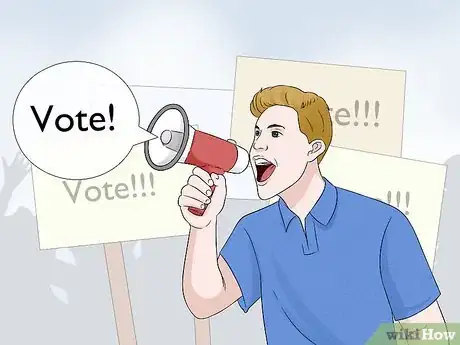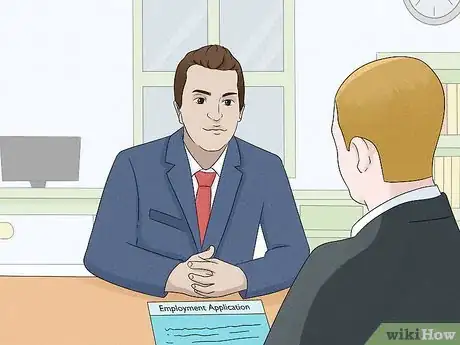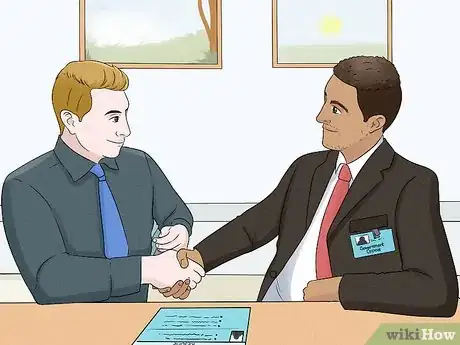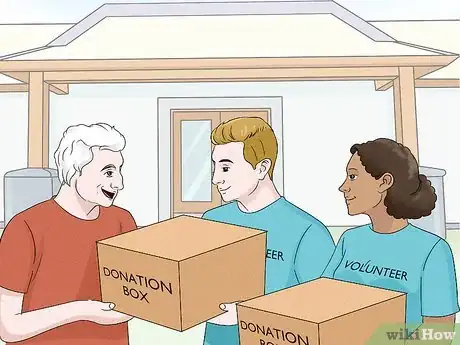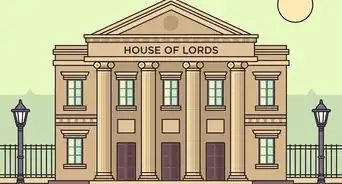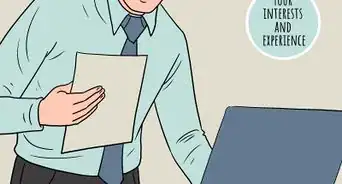This article was co-authored by wikiHow staff writer, Amber Crain. Amber Crain has been a member of wikiHow’s writing staff for the last six years. She graduated from the University of Houston where she majored in Classical Studies and minored in Painting. Before coming to wikiHow, she worked in a variety of industries including marketing, education, and music journalism. She's been a radio DJ for 10+ years and currently DJs a biweekly music program on the award-winning internet radio station DKFM. Her work at wikiHow supports her lifelong passion for learning and her belief that knowledge belongs to anyone who desires to seek it.
There are 9 references cited in this article, which can be found at the bottom of the page.
wikiHow marks an article as reader-approved once it receives enough positive feedback. In this case, 83% of readers who voted found the article helpful, earning it our reader-approved status.
This article has been viewed 150,401 times.
Learn more...
Politics can be a challenging and rewarding field for people who want to create a life in service to others. Whether you want to run for office, manage campaigns, or work in a policy environment, politics is stressful, competitive and high energy. In addition to being a skilled communicator, you will need to understand government and the political process. Make a career in politics by studying history and political science, interning and volunteering in the field and getting involved in local campaigns and issues.
Steps
-
1Earn your degree. While you can run for office without a degree, graduating from college will demonstrate you have studied current events, history and government. There are no specific degrees that can get you in to politics, but Business, Law, Education are the most popular choices of candidates.[1] Although almost any other degree would work just fine.
- Take classes in a variety of subjects.
- Consider continuing your education. Many people in politics have advanced degrees in law, business or public administration.
-
2Get an internship. Most political internships are unpaid, but they are invaluable in giving you the experience and exposure you need.[2]
- Work as an intern for an elected official, a government agency, a political action committee or a nonprofit group that is interested in public policy issues.
Advertisement -
3Volunteer on campaigns. During election years, volunteer for a national or local candidate in your area. You will get a first hand look at how campaigns are managed.[3]
-
4Look for a paid political position. After you graduate and pay your professional dues via an unpaid internship, look for political work.[4]
- Apply for entry level positions as a legislative aid, campaign staffer or field representative.
- Work for lesser-known representatives and agencies. While it would be great to have the name of a powerful senator or lobbying group on your resume, you will likely get more responsibility if you start small.
-
5Get experience in both public policy and elections.
- Work for a candidate or elected official for a few years, and then switch to the policy making side. Getting broad experience will help your political career and put you in touch with a larger network of people.
-
6Become visible in your community. Whether you are planning to run for office yourself or you want to work in other parts of politics, community involvement is essential.[5]
- Serve on boards of local agencies, volunteer for schools, churches and other groups, and attend local events in the community.
-
7Practice your networking and public speaking.[6] Communication skills are necessary to a career in politics, and you should always be improving yours.
- Give speeches, join civic organizations and learn how to introduce yourself to people you do not know.
-
8Develop and maintain relationships. Politics is often about who you know, and you should know as many people as you can.[7]
- Get to know people from many different backgrounds and constituencies. In politics, you will need to do fundraising, community outreach, campaigning and a lot of work with the media. The more contacts you can call upon for support, the stronger your career will be.
-
9Pay attention to current events. You must know what is going on locally, nationally and globally.
- Read major newspapers such as The New York Times and The Wall Street Journal, sign up for e-newsletters from political organizations and nonprofit groups and check websites such as Huffington Post, Politico and others.
-
10Develop a thick skin.[8] Politics comes with a lot of rejection, especially campaign politics.
Community Q&A
-
QuestionWhat careers are there in politics?
 wikiHow Staff EditorThis answer was written by one of our trained team of researchers who validated it for accuracy and comprehensiveness.
wikiHow Staff EditorThis answer was written by one of our trained team of researchers who validated it for accuracy and comprehensiveness.
Staff Answer wikiHow Staff EditorStaff AnswerThere are a huge variety of political careers you could pursue, including working as an elected official, participating in political campaigns, becoming a staff member for an elected official, or being a political analyst. You could also become an economist, lobbyist, social media strategist, or a teacher of political science.
wikiHow Staff EditorStaff AnswerThere are a huge variety of political careers you could pursue, including working as an elected official, participating in political campaigns, becoming a staff member for an elected official, or being a political analyst. You could also become an economist, lobbyist, social media strategist, or a teacher of political science. -
QuestionWhat is the highest paying job in politics?
 wikiHow Staff EditorThis answer was written by one of our trained team of researchers who validated it for accuracy and comprehensiveness.
wikiHow Staff EditorThis answer was written by one of our trained team of researchers who validated it for accuracy and comprehensiveness.
Staff Answer wikiHow Staff EditorStaff AnswerSome of the best-paid jobs in politics include political speechwriter, lobbyist, campaign manager, PR manager, and security specialist.
wikiHow Staff EditorStaff AnswerSome of the best-paid jobs in politics include political speechwriter, lobbyist, campaign manager, PR manager, and security specialist. -
QuestionIs political science a difficult major?
 wikiHow Staff EditorThis answer was written by one of our trained team of researchers who validated it for accuracy and comprehensiveness.
wikiHow Staff EditorThis answer was written by one of our trained team of researchers who validated it for accuracy and comprehensiveness.
Staff Answer wikiHow Staff EditorStaff AnswerMany people find it difficult, but it depends on your strengths, interests, and background knowledge. You’ll need to understand how to do original research and understand some pretty complex mathematical concepts (especially relating to statistics).
wikiHow Staff EditorStaff AnswerMany people find it difficult, but it depends on your strengths, interests, and background knowledge. You’ll need to understand how to do original research and understand some pretty complex mathematical concepts (especially relating to statistics).
Warnings
- Try not to go into politics for the wrong reasons. If you are looking for power and wealth, choose another career path. Most people go into politics because they care about their community and their country, and they want to make the world a better place.⧼thumbs_response⧽
References
- ↑ https://www.topuniversities.com/student-info/careers-advice/degrees-future-world-leaders
- ↑ https://www.thecampaignworkshop.com/how-land-your-first-dc-political-internship
- ↑ https://www.artofmanliness.com/articles/how-to-get-involved-in-politics/
- ↑ https://www.themuse.com/advice/love-politics-make-it-your-job
- ↑ https://www.theguardian.com/careers/careers-blog/politics-career-how-to
- ↑ https://careersingovernment.com/tools/gov-talk/about-gov/job-descriptions/5-skills-need-pursue-career-political-communications/
- ↑ https://www.iafc.org/on-scene/on-scene-article/be-political-without-being-a-politician-build-and-maintain-solid-relationships
- ↑ https://tinybuddha.com/blog/dealing-criticism-5-tools-develop-thick-skin/
- http://www.politicalsciencecareer.com/become-a-politician.html


